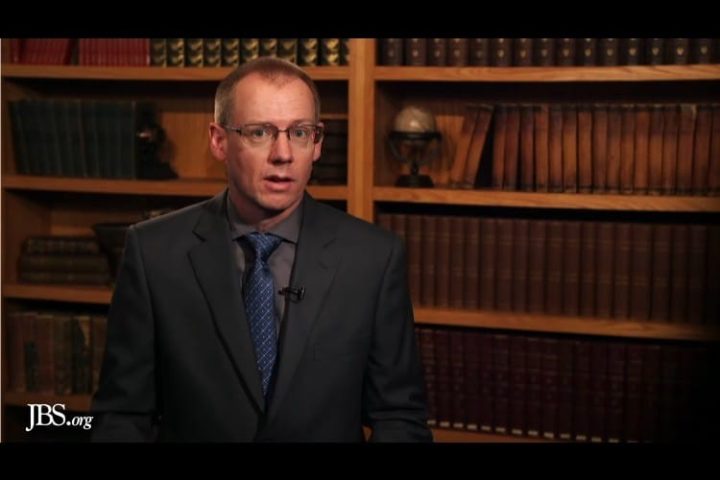
We’ve all heard the phrase, “Think Globally, Act Locally.” Before the big global warming hysteria began, hard left environmentalists used this phrase as part of a bigger program to inculcate citizens, students, industry, and governments around the world to undertake local activities based on the dubious concept of saving planet Earth.
We’ll look into this background that connects Agenda 21, Agenda 2030, and the Great Reset and suggest ways you can help restore the Republic in today’s episode. Please be sure to take the suggested actions, including getting a free download of our latest booklet that further explains this and how you can fight it in your local community. Then please like, subscribe, and share this information on your social media platforms.
The United Nations began using the specter of environmental sustainability back in 1992 at the first Rio Earth Summit. Shortly thereafter, the United Nations Development Programme rolled out an incentive program to provide “a global platform for civil society and local communities to come together to share ideas and take local actions to address global environmental issues.”
According to its website, the core of this incentive program “is the belief that communities and civil society organisations — and the networks and movements they create in their efforts to sustainably manage natural resources — are fundamental and necessary to shift the global development trajectory from biodiversity erosion and natural resource depletion, to one based on natural capital management and productive landscapes/seascapes.”
Keep in mind what accomplishing this will take. It will take efforts on all levels of government to implement and enforce such takeover of industry, markets, buying habits, and property rights as all are forced to comply. This became very evident when Agenda 21 was slowly implemented over the next two decades.
By early 2011, The New American magazine exposed the plot of the UN’s Agenda 21 to directly connect the UN with local governments. The New American pointed out that
much of Agenda 21 and the rest of the Earth Summit program have been enacted piecemeal at the state and local levels, but as “Smart Growth Initiatives,” “Resilient Cities,” “Regional Visioning Projects,” “STAR Sustainable Communities,” “Green Jobs,” and “Green Building Codes.” After going through charades labeled as “local visioning,” “community in-put,” and “consensus building,” one community after another has found that it has enacted a “local” program that is virtually indistinguishable from every other “local” program, whether across the country or across the planet. The more important point, though, is that these initiatives that have been enacted ostensibly to save the environment, invariably destroy economic vitality, erode property rights, undermine liberty and constitutional government, impose soviet-style rule through “stakeholder councils,” subvert local control — and usually devastate the natural environment to boot.
The extent of Agenda 21 was also laid bare in the article. It said,
Agenda 21 proposes a global regime that will monitor, oversee, and strictly regulate our planet’s oceans, lakes, streams, rivers, aquifers, sea beds, coastlands, wetlands, forests, jungles, grasslands, farmland, deserts, tundra, and mountains. It even has a whole section on regulating and “protecting” the atmosphere. It proposes plans for cities, towns, suburbs, villages, and rural areas. It envisions a global scheme for healthcare, education, nutrition, agriculture, labor, production, and consumption — in short, everything; there is nothing on, in, over, or under the Earth that doesn’t fall within the purview of some part of Agenda 21.
One of the main partners in implementing this agenda into local governments back then was ICLEI: Local Governments for Sustainability, an NGO that used to be called International Council for Local Environmental Initiatives. In 2011, it had more than 1,200 local government members from 70 countries. Today, it boasts of 2,500 members from more than 125 countries, but according to its member map, it has somewhere around 300 members in the United States.
In 2011, The John Birch Society launched an action project to call attention to this sneaky agenda and the work done by members resulted in ICLEI losing many American members.
The New American caught up to ICLEI’s president at the Rio+20 Earth Summit in 2012 and asked him about the growing opposition to ICLEI and Agenda 21, including the fact that Alabama had just passed a law prohibiting Agenda 21. The New American reported,
ICLEI President David Cadman seemed perplexed. “I haven’t seen that about Alabama, and I’m quite surprised about that,” he said, adding that he did not think states could pass such laws.
On the growing backlash against “sustainability” more generally, Cadman also sounded somewhat confused. “I’ve got to confess I don’t really understand the Tea Party…. We find that [opposition] nowhere else but in America,” he said. “I think, quite frankly, a lot of that is because America is not well served by its media…. There are times when I’ll turn on Fox News, and I’ll say, “This wouldn’t be allowed in Canada,” Cadman added, pointing to Canadian laws that force media outlets to give “both sides of the story.”
With such exposure, the UN’s Agenda 21 was largely derailed in the U.S., but it has come back with a fiery vengeance under Agenda 2030. As The New American pointed out, Agenda 2030 is “a recipe for global socialism.” It’s “touted as a solution to everything from poverty to global warming, [but it’s] really a plan to empower a global governing body.”
Released in 2015, the master plan, again, according to The New American, “is comprised of 17 ‘Post-2015 Sustainable Development Goals’ (SDGs) with 169 specific ‘targets’ to be foisted on all of humanity — literally all of it, as the plan itself states explicitly. ‘As we embark on this collective journey, we pledge that no one will be left behind,’ reads the UN manifesto, entitled Transforming Our World: the 2030 Agenda for Sustainable Development.”
At the time, UN Secretary-General Ban Ki-moon said, “What we are announcing today — an Agenda for global action for the next fifteen years — is a charter for people and planet in the twenty-first century.”
While the big buzz term today is the Great Reset as pushed by Klaus Schwab, the United Nations was way ahead of him in terms of wanting to control all of humanity. Those planners of the New World Order that founded the United Nations, those that worked through the United Nations, and those that are currently working through the UN have already begun such a reorientation of society. The Great Reset is definitely not a new concept of remaking and reshaping society in the eyes of elites.
Yet, how it will be accomplished lends itself to you being observant in your community. Remember that Agenda 21 was being pushed to local governments, which took up the so-called non-binding resolution and make it binding after codifying parts of it into law. While the most recent biggest angst for most Americans in regards to liberty and rights being stepped on has been the federal government, watch what’s going on in your own community and state.
Here’s why. The September/October 2022 issue of Foreign Affairs, the publication of the main globalist think tank Council on Foreign Relations, has an article titled “The Fractured Superpower” that suggests Congressional deadlock should lead to states taking an active role in shaping and implementing “the global policy agenda.”
We are predicting that no community is safe from this leftist infiltration. NGO and related partners may already be working at local levels throughout the country to provide incentives for opinion molders, influencers, elected officials, and other stakeholders to empower and codify radical climate change, rabid environmentalism, and social “justice.”
The article suggests that “states fill in existing policy gaps when the federal government stalls.” It even insists that states should take advantage of potentially unconstitutional means to advance the global agenda:
States with outsize stakes in energy, trade, and technology have special incentives to engage in foreign policy. In economic sectors that are underfunded or left unaddressed by Washington, larger states are seeking their own international partnerships or agreements to compensate. In 2014, California began a cap-and-trade agreement with Quebec, allowing the two regions jointly to create the largest carbon market in North America; in 2022, the Massachusetts Biotechnology Council launched a partnership with a European Union health industry trade body to promote cross-border biotechnology research. Although the U.S. Constitution prevents states from entering into formal treaty arrangements, the State Department has interpreted these constraints to apply only to agreements that are “legally binding,” leaving plenty of room for states to make international arrangements by other means.
Folks, globalists are targeting your community to upend your rights and to insert their anti-American agenda. This is a constant threat and one that all of us need to watch. Start with visiting the ICLEI site to see if your community is a member. If it is, educate your local government to drop its membership and to not accept any funds from NGOs or international bodies offering to help implement any of these sustainable development goals.
As a free gift to you to help battle this takeover, we’re offering a download of Exposing the 2030 Agenda, our latest expanded Agenda 2030 booklet. It includes much more information than the printed booklet we sell, so please download today, read it, and share it with others.
Also be sure to visit our Stop Agenda 2030 action page for more information on how you can help stop this in your community. And use our legislative alert to tell Congress to get the US out of the United Nations.
I’m Bill Hahn for The John Birch Society and until next time, stay informed, stay active, and let’s win this patriots!



